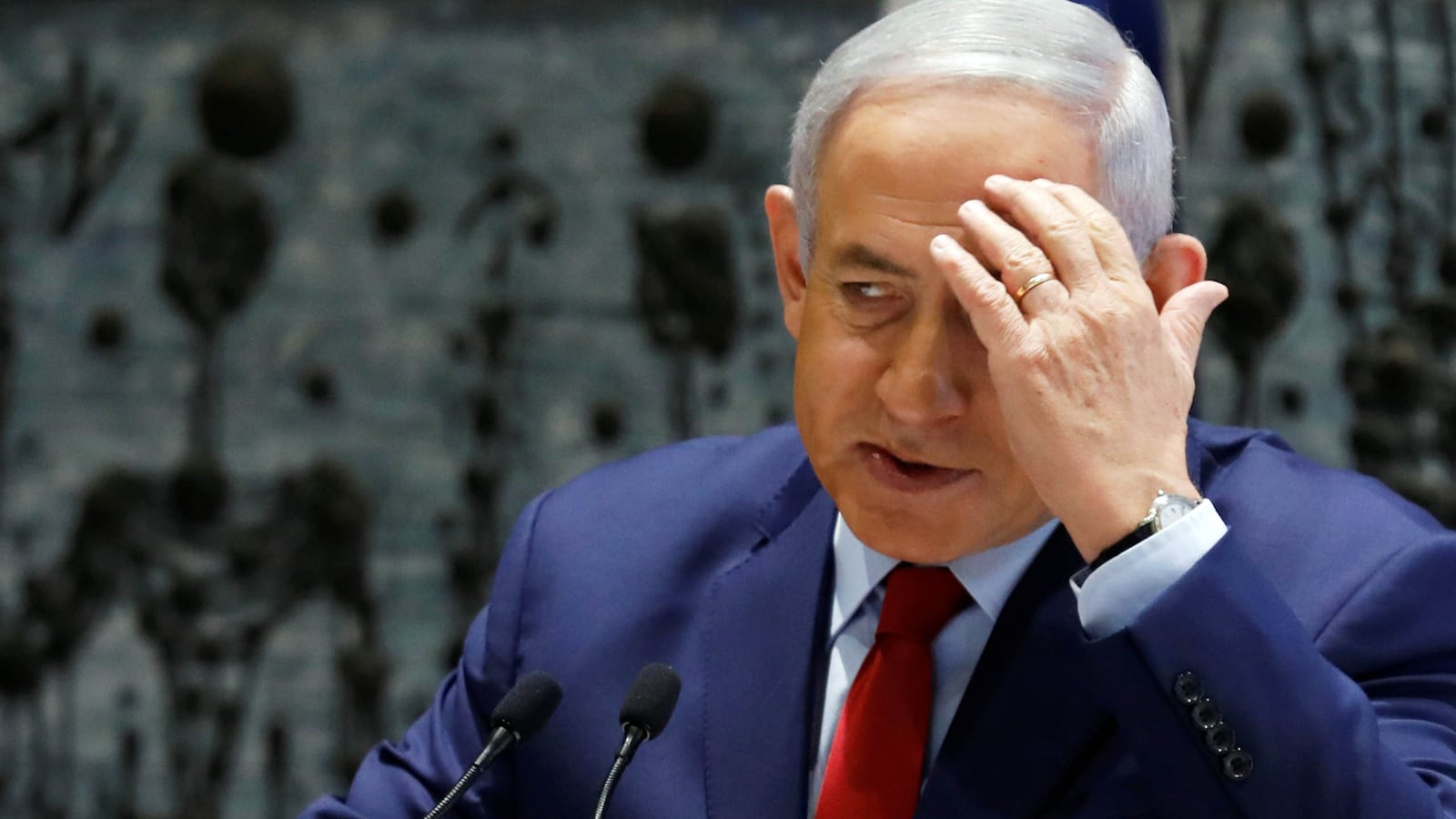JERUSALEM — In the most expected surprise declaration of 2018, Israeli Prime Minister Benjamin Netanyahu has announced the dissolution of Israel’s parliament, the Knesset, and elections to be held in early April.
The move comes days after U.S. President Donald Trump roiled the region with the startling announcement he was immediately withdrawing U.S. troops from Syria, and as his long-anticipated plan to renew peace talks between Israel and the Palestinians appears to be have shriveled.
A 2019 electoral campaign was inevitable, in fact. Netanyahu’s four-year mandate runs out in November 2019, but Monday’s unforeseen move became inescapable when Netanyahu was unable to muster the necessary votes to pass a popular law levying heavier fines against orthodox Jewish seminary students who dodge Israel’s otherwise universal draft of 18-years-olds on religious grounds.
Netanyahu's ultra-Orthodox coalition members opposed the law, and two opposition parties that had initially hinted at support withdrew it due to fears Netanyahu and his religious political partners had cut a secret deal providing financial compensation to counterbalance fines imposed on draft dodgers.
Elections have been in the air since Defense Minister Avigdor Lieberman’s resignation last month, which left the survival of Netanyahu’s coalition hanging by a single Knesset vote.
Lieberman has since taunted Netanyahu for his “government for survival,” but the prime minister remains the most popular leader in Israel’s rambunctious multi-part political process.
The next three months will see Bibi, as Netanyahu is widely known, confront unprecedented tests, none more challenging than his own precarious legal predicament.
Following police and state attorney recommendations that he be indicted on several corruption charges, senior Israeli jurists say his prosecution appears inevitable.
Finance Minister Moshe Kahlon, an essential partner in any future Netanyahu government, restated on Monday that no minister, and no prime minister, can continue to serve if indicted.
Israel’s Justice Ministry issued a rare statement reassuring the public that its work in sifting through the legal recommendations will continue “as usual” despite the announcement of elections.
Attorney General Avichai Mandelblit, a Netanyahu appointee who will make the final determination, said at a conference last week that Israeli law has not yet had to decide whether a sitting prime minister may remain in office if facing legal prosecution.
In recent years, both a president and a prime minister resigned when facing almost certain indictment,. Both eventually served time in prison.
Speaking to a quickly assembled meeting of his parliamentary faction, and ignoring the legal drama, Netanyahu forecast victory in the April vote and said the coalition he currently leads—the most right-wing in Israeli history and one of the most volatile— is “the seed” for his future government.
Listing his administration’s achievements, Netanyahu ignored instability in the financial markets that saw the Tel Aviv stock exchange lose more than 5 percent of its value since U.S. President Donald Trump’s startling decision to withdraw American troops from Syria, where they have provided crucial support for Israeli efforts to contain and halt Iranian entrenchment.
Lauding his government’s “four full years of achievements,” Netanyahu praised Israel as “a growing power, with flourishing diplomatic ties” with continental powerhouse nations such as India, Brazil and Australia, far from Israel’s historic allies.
After extolling ties with “west and east Europe, and central Europe, and Latin America," Netanyahu extolled Israel’s alliance “with the United States that has never been stronger, with the historic decision made by President Trump to recognize Jerusalem as Israel’s capital and move the embassy to Jerusalem.”
“Israel has the eighth most powerful military on earth,” he boasted to his followers. “It is hard to believe, Israel is not a large country, but serious institutions rank us that high.”





